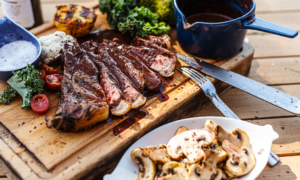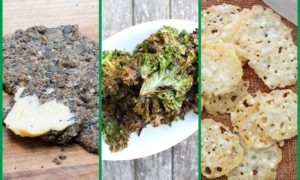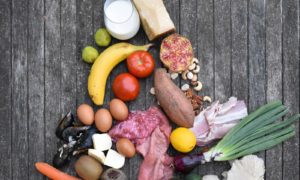Estimated reading time: 2 minute(s)
The Japanese have the highest life expectancy in the world, and it hasn’t stopped increasing, the current average life expectancy is already 84.2 years old. They also have the highest number of centenarians in the world, with more than 80,000 inhabitants over 100 years old!
Japan is rooted in tradition and there is no doubt that their long life expectancy is thanks to a traditional Japanese diet. In the 90s, nutritionist Walter Willett linked the diet to a lower incidence of heart disease, and we recently learned from Tsuyoshi Tsuduki, professor of molecular bioscience at Tohoku University, that the traditional Japanese diet of the 1970s was responsible for a longer life expectancy, as well as a lower incidence of diabetes and fatty liver disease.
The staples of the Japanese diet
Don’t fill yourself up
In Japanese culture, they suggest only eating up to 80% of one’s capacity. Eating in moderation helps to avoid binge eating and this can have many benefits: it helps prevent obesity, improves the digestion process, and perhaps most importantly makes us mindful. It raises our awareness of when we are hungry and when we feel full.
Plus, by not stuffing ourselves we can continue about our day without that heavy feeling.
Green Tea
Replacing your daily coffee with Asia’s most popular drink might be a great place to start. It has the most antioxidants of all teas which helps delay aging, strengthens the immune system, reduces the risk of cardiovascular diseases, reduces glucose and insulin levels.
 Seaweed
Seaweed
Nori, wakame, dulse, kombu… are just some of the varieties out there. Seaweed is rich in fiber, water, and minerals such as calcium, iron, selenium, iodine, and vitamins B and E. People in the west may be surprised by all of their interesting properties, for example, they alkalinize the blood, reduce body fat storage and eliminate heavy metals from the body.
Bonus: they are super flavorful! I recommend adding them to your soup and stews little by little. You will see how they accentuate the flavor and really make your dish come alive!
Fun fact, did you know that dulse seaweed is 30 times richer in potassium than bananas, and that nori seaweed has twice as much protein as many kinds of meat?
Everything steamed
Much of the Japanese diet isn’t about what they eat but how they eat it. They don’t fry food, they boil, steam, or grill it. This way of cooking helps to preserve both the flavor and nutrients of the food they eat.

Fish at any time of day
Yes, this includes the mornings! Japanese people often have fish for breakfast and it seems that the secret to their good health and metabolism as well as their low incidence of heart problems is thanks to these dishes rich in vitamin D, antioxidants (oily fish has carotenes), and necessary fats, such as Omega 3.
Keep it seasonal
Everyone in this country seems to be very conscious of the seasons and their diet is totally governed by what nature dictates. The Japanese do not usually buy fruits and vegetables from abroad nor do they get them from greenhouses or a method of farming called forcing.
Fermented Foods
Foods such as pickles, miso, kombucha, sauerkraut, or kefir help maintain healthy gut microbiota. Fermented foods contain lactic acid, which cleans the colon and assists in maintaining a healthy balance of bacteria. Additionally, through the fermentation process, proteins are more easily digested, and the bioavailability of vitamins increases, which ultimately results in a better functioning pancreas, better digestion, and you’re less likely to suffer from constipation.
Did you know that Japanese people eat fermented foods daily?

Eat slowly and chew!
You already know that chewing your food well helps digestion and the absorption of nutrients. How? By chewing you help take the heavy lifting off of your stomach. The Japanese way of eating is a far cry from the western rush we may be used to. They eat calmly and take their time.
This way of eating makes you feel more relaxed. Moreover, it has been proven that eating slowly without stress contributes to overall satiety and thus assists in preventing obesity. If you are a quick eater perhaps you can try eating with chopsticks to slow you down. Believe me, it works!












